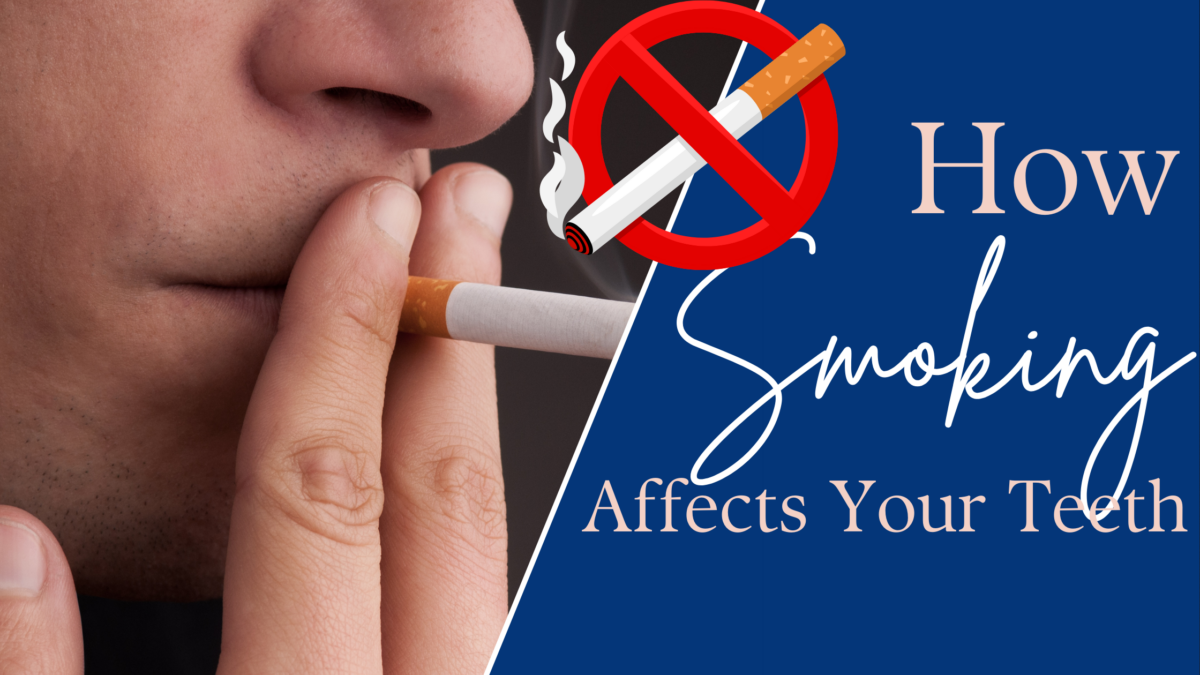Stop the Damage: How Smoking Affects Your Teeth

Smoking is widely known for its detrimental effects on overall health, but its specific impact on oral health often goes unnoticed. Your teeth and gums bear the brunt of smoking, leading to discoloration, decay, and even more severe consequences. In this article, we’ll explore how smoking affects your teeth, the long-term consequences, and practical steps to protect your oral health.
The Connection Between Smoking and Oral Health
Smoking harms oral health in several ways:
- Reduces Blood Flow: Smoking constricts blood vessels, depriving your gums of essential nutrients and oxygen.
- Weakens Immune Responses: Your mouth becomes more susceptible to infections as smoking compromises your body’s ability to fight bacteria.
- Disrupts Healing: Smokers experience slower recovery from dental procedures due to impaired blood circulation.
These factors make smokers more prone to gum disease, tooth loss, and other oral health issues.
How Smoking Affects Your Teeth and Gums
- Tooth Discoloration and Stains
- The nicotine and tar in tobacco products stain your teeth, leaving them yellow or brown.
- Over time, these stains penetrate deep into the enamel, making them difficult to remove with regular brushing.
- Stained teeth can lead to embarrassment and lower self-confidence.
- Increased Risk of Gum Disease
- Smoking significantly raises the risk of periodontal (gum) disease.
- It reduces blood flow to the gums, weakening the tissue and making it more susceptible to infection.
- Smokers often experience receding gums, which can lead to loose or lost teeth.
- Tooth Decay and Loss
- Smoking dries out the mouth, reducing saliva production. Saliva is essential for washing away food particles and bacteria.
- A drier mouth creates an ideal environment for plaque buildup, leading to cavities.
- Untreated cavities and gum disease can result in tooth loss.
- Bad Breath and Oral Infections
- Smoking causes persistent bad breath, known as “smoker’s breath,” due to tar buildup and dry mouth.
- Smokers are more prone to oral infections like thrush, a fungal infection causing white patches in the mouth.
- Slower Healing and Complications
- Smokers face delayed healing after dental surgeries, such as tooth extractions or implants.
- Smoking increases the risk of complications, including implant failure.
The Long-Term Consequences of Smoking on Oral Health
If left unchecked, the damage caused by smoking can escalate:
- Oral Cancer: Smoking is one of the leading causes of oral cancers, affecting the tongue, gums, and other mouth tissues.
- Advanced Gum Disease: Severe periodontal disease can result in chronic pain, abscesses, and widespread tooth loss.
- Bone Loss: Gum disease and tooth loss contribute to bone loss in the jaw, altering facial structure and making it difficult to get dental implants.
- Systemic Health Risks: Poor oral health caused by smoking can increase the risk of heart disease, diabetes, and respiratory infections.
Preventing and Reversing Damage: Tips for Smokers
Even if you smoke, there are steps you can take to mitigate the damage:
- Schedule Regular Dental Checkups
- Visit your dentist at least twice a year for cleanings and exams.
- Professional cleanings can remove tobacco stains and plaque buildup.
- Adopt Better Oral Hygiene Habits
- Brush your teeth twice daily with a fluoride toothpaste.
- Use an electric toothbrush for more effective cleaning.
- Floss daily to remove plaque between teeth and below the gumline.
- Use Products Designed for Smokers
- Consider mouthwashes and toothpaste designed to combat the effects of smoking, such as stain removal and dry mouth relief.
- Limit Smoking Frequency
- Reducing the number of cigarettes you smoke daily can decrease immediate harm.
- Avoid smoking right after dental procedures to promote healing.
- Explore Alternatives to Smoking
- While not risk-free, nicotine patches, gums, or e-cigarettes may pose less immediate harm to your oral health. Consult your dentist before making the switch.
Why Quitting Smoking Is the Best Solution for Your Teeth
Stopping smoking is the most effective way to protect your teeth and gums:
- Improved Gum Health: Gums regain their natural blood flow and healing ability after quitting.
- Fewer Cavities: A healthier mouth reduces the risk of plaque buildup and decay.
- Better Breath: Fresh breath becomes achievable without the constant odor of tobacco.
- Cosmetic Improvements: Whitening treatments are more effective on teeth not regularly exposed to tobacco stains.
Resources for Quitting Smoking
If you’re ready to quit, here are some resources to help:
- Support Groups: Join local or online communities for accountability and encouragement.
- Cessation Programs: Contact your healthcare provider for access to structured quitting programs.
- Quitline Services: Call hotlines like 1-800-QUIT-NOW for personalized support.
Frequently Asked Questions About Smoking and Oral Health
Can whitening treatments remove tobacco stains permanently?
Whitening treatments can lighten tobacco stains, but quitting smoking is essential to maintain results.
How long does it take for oral health to improve after quitting?
Improvements can start within weeks, but it may take months for gum tissue to heal fully.
Are e-cigarettes and vaping as harmful as traditional smoking for teeth?
While less harmful than traditional cigarettes, vaping still exposes your mouth to chemicals that can cause dry mouth, gum irritation, and other issues.
Your oral health is a critical component of your overall well-being. Smoking doesn’t just harm your lungs; it impacts your teeth, gums, and smile. While regular dental care and hygiene habits can mitigate some damage, quitting smoking is the best step toward a healthier mouth and brighter future.
Take action today—schedule a dental checkup and explore resources to help you quit smoking. Your smile will thank you!
